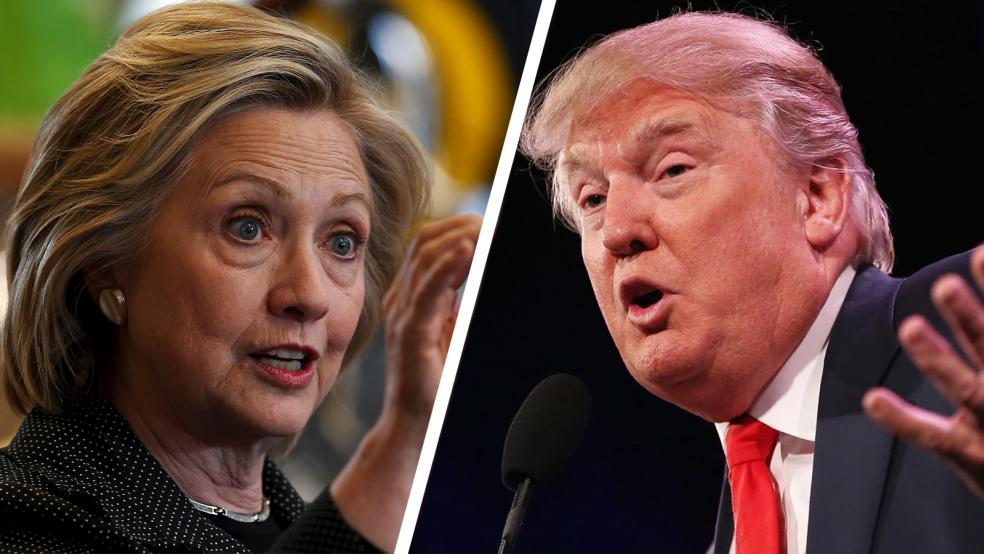By some accounts, Arizona Sen. John McCain and his presidential campaign staff spent all of 48 hours over a long weekend vetting then-Alaska governor Sarah Palin before McCain tapped her as his vice presidential running mate, just days before the September 2008 Republican National Convention.
The McCain-Palin ticket, of course, went down in flames against Democrat Barack Obama that year, and many second-guessed McCain’s hasty decision-making. Palin was one of many who instead of boosting the ticket brought it down. George McGovern had a shot at beating Richard Nixon in 1972 until his veep admitted to having shock therapy. McGovern tried to stand by him, but dumped him over what had become a scandal.
Related: Five Demands Sanders Can Get From Clinton at the Convention
Billionaire Donald Trump, the 2016 presidential frontrunner, has signaled he won’t begin seriously considering a running mate until he has locked up the nomination – which technically might not come until the July convention in Cleveland. But that’s not the case with his two remaining rivals, Sen. Ted Cruz of Texas and Gov. John Kasich of Ohio.
The Washington Post reported on Thursday that Cruz and Kasich are pulling together lists of potential running mates and researching their backgrounds. With both desperately looking for any kind of leverage to slow Trump’s march to the GOP nomination, Cruz and Kasich are considering the possibility of announcing their running mates as early as June, at the end of the primary season, or waiting to the start of the national convention in July to capture attention.
The choice of a running mate has historically turned on calculations of how best to strengthen the ticket in the general election campaign, whether it’s finding a way to achieve better regional balance, adding heft or political experience or simply exciting the party’s base. But with a contested GOP convention in the offing this summer, Cruz and Kasich are more concerned at this point about swaying wavering Trump delegates to side with them on a second or third ballot or generating excitement as the convention gets underway.
Related: Trump and Clinton Sweep New York and Score Big Delegates
Paul Manafort, Trump’s newly appointed senior campaign strategist, pooh-poohed the need for an early start in the vetting process during an exchange with reporters Thursday at a Republican National Committee meeting in South Florida.
“The other two campaigns have to [start the vetting process] because they’re not relevant. They’re not credible to be the nominee. They have to do things that will make people assume they’ll be the nominee. We’re doing things that will make us the nominee.”
But some experts who have been through past presidential campaigns say Trump and Manafort may be making a serious mistake, and that the choice of a running mate can blow up in your face unless enough time, thought and energy is devoted to the task.
A new report from the Bipartisan Policy Center strongly urges candidates to begin the vice presidential selection process now, three months before the start of the conventions, to avoid possible mishaps.
Related: Clinton Can Start Writing Her Nomination Acceptance Speech After NY Win
In addition to compatibility, the selection process could portend the quality of the cabinet and White House staff the candidate might ultimately assemble.
But most importantly, the candidate and his advisers must determine whether their choice has the experience and capability to step in and assume the reins of the government if the new president is incapacitated or assassinated.
“Vice presidents must be of presidential timber, able to step into the nation’s highest office,” the report states. “They are political partners, White House advisors and confidants, and leaders of important administration initiatives, but in the end, a vice president must be someone with the character, stature, and ability to assume the presidency if needed.”
Related: Clinton vs. Trump: Get Ready for the Nastiest General Election in Memory
Among the reports’ most important recommendations to the candidates:
- At a minimum, eight weeks should be allotted for the “core vetting” and selection process.
- Structure the process in a way to control access to sensitive information gathered – to avoid leaks or conflicts of interest in selecting a nominee.
- Notify the candidate ultimately chosen as the running mate and the others who were considered no more than a day or two before the announcement.





